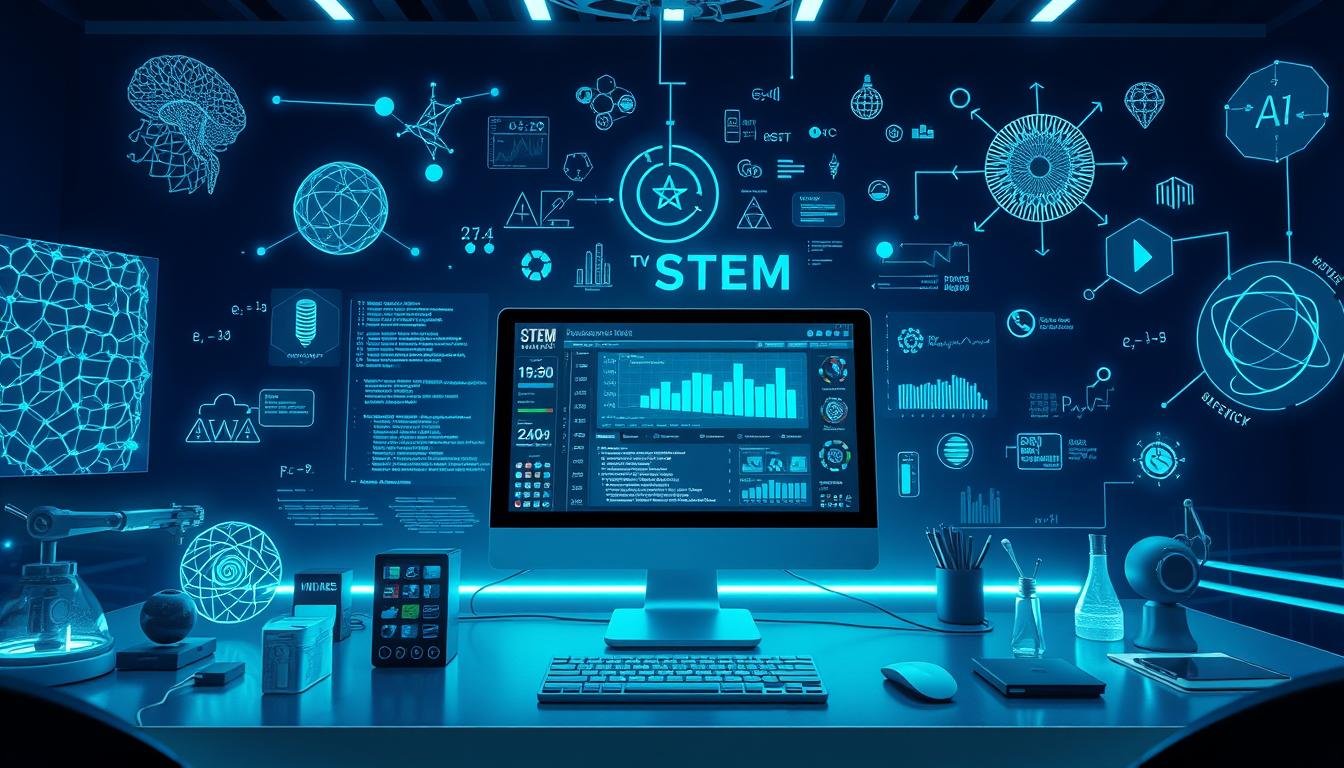The Best of AI for Literature Reviews
November 17, 2024 | by Jean Twizeyimana

AI for Literature Reviews! What do we know? The process of conducting literature reviews has undergone a remarkable transformation in recent years, thanks to the advent of artificial intelligence (AI) technologies. Gone are the days when researchers had to meticulously sift through stacks of scholarly articles, manually synthesizing and summarizing their findings. AI has revolutionized this once time-consuming task, empowering researchers to efficiently search, analyze, and organize vast amounts of literature with unprecedented speed and accuracy.
The evolution of literature reviews spans from early examples like James Lind’s 1753 treatise on scurvy to modern AI-powered tools. These advancements in AI for literature reviews, natural language processing for academic research, and automated literature analysis allow researchers to enhance the speed and comprehensiveness of their research endeavors.
Key Takeaways
- AI-powered tools are transforming the literature review process, making it faster and more comprehensive.
- Researchers can now efficiently search, summarize, and analyze vast amounts of scholarly literature using AI technologies.
- The evolution of literature reviews spans from early examples to modern AI-powered tools.
- AI for literature reviews, natural language processing for academic research, and automated literature analysis are driving these advancements.
- The integration of AI into the research workflow can enhance the speed and quality of literature reviews.
Introduction to AI in Literature Reviews
The world of academic research is evolving rapidly, thanks to the integration of artificial intelligence (AI) into the literature review process. AI-powered tools are transforming the way researchers approach comprehensive literature reviews, offering time-saving solutions and enhancing the accuracy and depth of their analyses.
What is AI for Literature Reviews?
AI for literature reviews involves the use of machine learning algorithms and natural language processing (NLP) techniques to automate various stages of the review process. These technologies can assist researchers in efficiently searching, summarizing, and synthesizing the vast amount of research literature available in their field of study.
By leveraging text mining for systematic reviews and machine learning for evidence synthesis, AI-powered tools can help researchers identify relevant studies, extract key insights, and organize the information in a structured and meaningful way. This significantly reduces the time and effort required for conducting thorough literature reviews, allowing researchers to focus on interpreting the findings and developing new theories.
Importance of Literature Reviews in Research
Literature reviews play a crucial role in the research process, as they help researchers establish the current state of knowledge in their field, identify gaps in the existing literature, and provide the necessary context for their own studies. By synthesizing and analyzing the available research, literature reviews enable researchers to build upon the work of their peers, ensuring that their studies are well-grounded and contribute to the overall understanding of a particular topic.
In the age of information overload, where the volume of research publications is increasing exponentially, the need for efficient and comprehensive literature reviews has never been greater. AI-powered tools offer a solution to this challenge, empowering researchers to navigate the vast landscape of academic literature more effectively and efficiently.
Benefits of Using AI for Literature Reviews
Conducting comprehensive and efficient literature reviews is a crucial aspect of academic and scientific research. Fortunately, the integration of AI-powered tools offers substantial benefits that can revolutionize this crucial process. By harnessing the power of AI-powered literature search and semantic analysis for literature reviews, researchers can unlock new levels of time efficiency, accuracy, and data organization.
Time Efficiency and Automation
One of the primary advantages of AI in literature reviews is the dramatic improvement in time efficiency. AI tools can automate the search process, scouring vast databases of scholarly articles to identify relevant sources quickly and accurately. This automation eliminates the time-consuming manual tasks of searching, screening, and extracting data, allowing researchers to focus on higher-level analysis and synthesis.
Improved Accuracy and Coverage
AI-powered semantic analysis for literature reviews enhances the accuracy and coverage of literature reviews. These intelligent systems can extract and organize data with greater precision, reducing the potential for human error. Furthermore, AI-driven AI-powered literature search can access and analyze a more comprehensive range of scholarly sources, ensuring that researchers have a more complete understanding of the existing literature.
Enhanced Data Organization
AI tools also excel at organizing and structuring the vast amounts of information gathered during a literature review. These systems can categorize and group relevant studies, identify patterns and trends, and even suggest connections between disparate sources. This improved data organization not only streamlines the review process but also provides researchers with valuable insights that might have been difficult to uncover manually.
By harnessing the power of AI, researchers can unlock new levels of efficiency, accuracy, and data organization in their literature reviews, ultimately enhancing the quality and impact of their research.

How AI Tools Enhance the Literature Review Process
Navigating the ever-expanding landscape of academic literature can be a daunting task for researchers. However, the integration of AI-powered tools is revolutionizing the way we approach literature reviews. These cutting-edge technologies harness the power of machine learning algorithms and natural language processing (NLP) applications to streamline and enhance the review process.
Machine Learning Algorithms
Advanced machine learning algorithms play a pivotal role in automating and optimizing various stages of the literature review. These algorithms can efficiently sift through vast databases, identifying and extracting key information that is highly relevant to the research topic. By leveraging NLP-driven knowledge extraction, AI tools can summarize articles, analyze sentiment, and detect emerging trends, patterns, and connections across multiple studies.
Natural Language Processing Applications
The integration of natural language processing (NLP) applications further enhances the literature review process. These sophisticated tools can analyze the semantic and contextual meaning of research articles, enabling AI-assisted literature mapping that uncovers hidden relationships and insights. NLP algorithms can automatically extract key concepts, synthesize findings, and identify knowledge gaps, streamlining the review and synthesis of the literature.
The seamless integration of machine learning and NLP in AI-powered tools is transforming the way researchers approach literature reviews. By automating time-consuming tasks and providing deeper insights, these innovative technologies empower researchers to focus on the critical analysis and interpretation of the literature, ultimately leading to more informed and impactful research outcomes.
Popular AI Tools for Literature Reviews
As the research landscape evolves, AI-powered tools are revolutionizing the way scholars approach literature reviews. These innovative solutions streamline the process, enhance accuracy, and unlock new insights, empowering researchers to conduct more thorough and efficient analyses. Let’s explore some of the most popular AI tools transforming the world of literature reviews.
EndNote
EndNote, a leading reference management software, has integrated AI features to simplify the literature review process. Its intelligent search capabilities and automated citation formatting can save researchers valuable time, while its smart organization tools help maintain a structured and accessible database of relevant sources.
Mendeley
Mendeley, another widely used reference manager, leverages AI to streamline the literature review workflow. Its AI-powered features include smart document matching, automatic metadata extraction, and personalized recommendations, enabling researchers to discover and manage relevant studies more effectively.
Zotero
Zotero, a free and open-source reference management tool, has also embraced AI integration. Its AI-assisted features include automated citation generation, intelligent file organization, and contextual recommendations, making it a powerful ally in the literature review process.
Semantic Scholar
Semantic Scholar, an AI-powered search engine, stands out for its ability to assist researchers in navigating the vast landscape of scientific literature. Its advanced natural language processing algorithms help users discover relevant studies, analyze citation networks, and uncover valuable insights from the available research.
These are just a few examples of the AI-powered tools revolutionizing literature reviews. As the demand for efficient and accurate research synthesis grows, the integration of AI will continue to transform the way scholars approach their literature reviews, unlocking new possibilities for discovery and innovation.

The Process of Conducting a Literature Review with AI
Conducting a comprehensive literature review can be a time-consuming and labor-intensive task. However, with the advancements in artificial intelligence (AI), the process has become more efficient and effective. AI tools can assist researchers in various stages of the literature review process, from identifying research topics to analyzing and synthesizing findings.
Identifying Research Topics
AI-powered platforms, such as SciteAi, can help researchers identify relevant research topics by analyzing trends and gaps in existing literature. These tools use machine learning algorithms to provide valuable insights into the citation context and impact of scholarly articles, allowing researchers to pinpoint areas of interest and explore new avenues for investigation.
Collecting Relevant Studies
Gathering relevant studies for a literature review can be a daunting task, but AI-driven tools can streamline this process. Keenious and ResearchRabbit utilize advanced search algorithms and natural language processing to recommend relevant articles and topics based on the researcher’s input, making the collection of studies more efficient and comprehensive.
Analyzing and Synthesizing Findings
Once the relevant studies have been collected, AI can assist in the analysis and synthesis of findings. Elicit, which employs GPT-4 technology, can automatically summarize key information from research papers and present it in a table format, saving researchers valuable time and effort. This enables researchers to focus on the interpretation and integration of the literature, leading to a more insightful and impactful literature review.
By incorporating AI into the literature review process, researchers can significantly improve the efficiency, accuracy, and depth of their work. As the field of AI continues to evolve, the potential for enhancing the literature review process will only continue to grow, empowering researchers to achieve high-quality results more quickly and effectively.
Integrating AI into Your Research Workflow
As researchers seek to streamline their literature review process, integrating AI-powered tools into their workflow has become increasingly crucial. These AI-powered literature search and NLP-driven knowledge extraction tools can significantly enhance the efficiency and effectiveness of conducting comprehensive reviews.
Best Practices for Implementation
To effectively integrate AI into your research workflow, it’s important to follow some best practices. Start by clearly defining your research questions and objectives, as this will help you select the appropriate AI tools for specific tasks. Regularly validate the outputs of your AI-assisted literature search and analysis to ensure accuracy and relevance.
Balancing AI with Human Expertise
While AI offers numerous benefits, it’s essential to maintain a balance between AI capabilities and human expertise. Researchers’ critical thinking, domain knowledge, and contextual understanding remain indispensable for interpreting the results and drawing meaningful conclusions. Proper training and familiarization with AI tools are necessary for effective implementation and ensuring that AI augments rather than replaces human judgment.
| AI Tool | Key Features | Pricing |
|---|---|---|
| Consensus | Generative AI, deep learning, scientific methodology | Free with limited features, $9 for unlimited access |
| Perplexity.ai | Free version with limited daily searches, summaries from patient information websites | Free with limited features |
| Semantic Scholar | Free PDF access to a large number of papers with a single click | Free |
| Typeset.io | Customizable features for summarizing and organizing research papers | $12 per month for individuals, $8 per month for groups |
| Lens.org | Integrates scholarly search with patent database search, displays extensive information on companies’ patents, institutions, and authors | Free |
By striking the right balance between AI-powered tools and human expertise, researchers can unlock the full potential of AI in enhancing their literature review process and ultimately accelerating the creation of new knowledge.
Ethical Considerations in AI-Assisted Literature Reviews
As the use of AI for research synthesis and semantic analysis in literature reviews continues to grow, it is essential to address the ethical considerations surrounding this technology. Two key areas of concern are data privacy issues and plagiarism concerns.
Data Privacy Issues
Researchers must ensure that the AI tools they employ comply with data protection regulations and maintain the confidentiality of sensitive information. AI for research synthesis and semantic analysis for literature reviews often involve processing large datasets, and it is crucial to safeguard the privacy and security of the data used in these processes.
Plagiarism Concerns
Another ethical concern is the potential for plagiarism when AI generates summaries or paraphrases of research findings. While AI-powered tools can significantly streamline the literature review process, there is a risk of inadvertent plagiarism if proper citation and attribution practices are not strictly followed. Maintaining the integrity of academic research requires a delicate balance between the benefits of AI and the need for human oversight and accountability.
Addressing these ethical issues is crucial for maintaining the integrity of academic research and ensuring that the use of AI in literature reviews is conducted in a responsible and transparent manner. Researchers must remain vigilant and implement robust measures to protect data privacy and prevent plagiarism, ultimately upholding the ethical standards that are fundamental to the research community.
| Statistic | Percentage/Value |
|---|---|
| AI tools, such as ChatGPT, have accumulated more than 1400 citations on PubMed by October 2023 | 1400+ |
| Urologists using ChatGPT or other large language models for medical research | 48% |
| Urologists using ChatGPT or other large language models in patient care | 20% |
| Urologists expressing potential ethical concerns when using ChatGPT for scientific or academic writing | 62% |
Case Studies: Successful AI Literature Reviews
The power of AI-assisted literature mapping and automated literature analysis has been demonstrated across various research fields. From medical research to environmental sciences, AI tools have transformed the way researchers conduct comprehensive literature reviews.
Real-World Examples
In the medical field, AI-powered tools have been instrumental in rapidly synthesizing findings on emerging health issues. Researchers were able to leverage AI algorithms to sift through vast amounts of data, identify relevant studies, and uncover insights that would have been difficult to achieve manually. This allowed them to stay ahead of the curve and inform policymakers and the public in a timely manner.
Similarly, in the realm of environmental sciences, AI has played a crucial role in analyzing massive datasets related to climate change, biodiversity, and resource management. By automating the literature review process, scientists were able to identify patterns, trends, and interdisciplinary connections that inform their research and decision-making.
Lessons Learned
- Clearly define research objectives: Successful AI-assisted literature reviews start with a well-defined research question or objective, ensuring the AI tools are properly aligned and optimized.
- Carefully select AI tools: Researchers must carefully evaluate and choose the right AI tools for their specific needs, balancing factors such as accuracy, efficiency, and user-friendliness.
- Maintain human oversight: While AI can streamline the literature review process, human experts are crucial in providing oversight, interpreting findings, and ensuring the quality and ethical use of these technologies.
These case studies highlight the importance of an iterative approach, where researchers continuously refine their processes and combine multiple AI tools to conduct comprehensive and insightful literature reviews. By embracing the power of AI-assisted literature mapping and automated literature analysis, researchers can unlock new possibilities in their fields and drive meaningful advancements.

Future Trends in AI for Literature Reviews
As the adoption of artificial intelligence (AI) continues to transform academic research, the future trends in AI for literature reviews are poised to enhance the efficiency and effectiveness of this crucial research component. One key area of advancement is the development of more sophisticated predictive analytics capabilities, which can help researchers identify emerging research topics and potential breakthroughs early on.
Another exciting trend is the continued improvement of advanced data visualization techniques. By leveraging AI-powered visualizations, researchers can gain a more comprehensive and intuitive understanding of complex research landscapes, facilitating better synthesis and identification of research gaps. This integration of AI-driven data analysis and visualization promises to revolutionize the way researchers navigate and comprehend the ever-growing body of scholarly literature.
Additionally, the focus on creating more user-friendly interfaces and seamless integration of AI tools with existing research platforms is expected to further streamline the literature review process. This will enable researchers to seamlessly incorporate AI-powered features, such as automated citation management, summarization, and bibliographic organization, into their established research workflows.
As the field of natural language processing (NLP) for academic research continues to advance, the potential for AI to enhance literature reviews will only continue to grow. From identifying emerging trends and patterns in research to facilitating more targeted and comprehensive literature searches, the future of AI-powered literature reviews holds immense promise for driving innovation and accelerating scientific progress.
Common Challenges When Using AI for Literature Reviews
While AI-powered tools have revolutionized the literature review process, researchers often face a range of challenges when integrating these technologies into their workflow. Two primary hurdles include technical limitations and user resistance.
Technical Limitations
One of the key challenges is the inability of current AI systems to fully comprehend the nuanced context and complex language used in academic literature. Machine learning for evidence synthesis algorithms may struggle to accurately interpret the subtleties and interdisciplinary nature of many research papers. This can lead to missed connections or misinterpretations that can undermine the validity of the literature review.
User Resistance
Researchers may also be hesitant to fully embrace AI-powered literature search tools due to a lack of trust in the AI’s outputs or difficulty in adapting to new technologies. Some may prefer the familiarity of traditional manual review methods, despite the potential time and efficiency gains offered by AI-assisted approaches.
Overcoming these challenges requires ongoing development of AI technologies to enhance their understanding of academic discourse, as well as comprehensive training and support for researchers to build confidence in the use of these powerful tools.
Conclusion: Embracing AI for Enhanced Literature Reviews
As the future of research continues to evolve, the integration of AI technologies into the literature review process promises to unlock new levels of efficiency, accuracy, and insight. AI tools can now process vast amounts of data in a fraction of the time it would take researchers to manually sift through countless studies, revolutionizing the way we approach literature synthesis.
The Future of Research with AI
Advancements in machine learning algorithms, natural language processing, and generative models like GPT-4 are paving the way for more comprehensive, personalized, and data-driven literature reviews. AI-powered tools can streamline tasks such as searching for relevant articles, extracting key insights, and organizing findings into structured formats, allowing researchers to focus on higher-level analysis and interpretation. As these technologies continue to evolve, we can expect to see deeper integration between AI and research workflows, seamlessly bridging the gap between different stages of the literature review process.
Encouraging Adoption in Academic Fields
Encouraging the widespread adoption of AI tools in academic fields requires a multifaceted approach. Researchers and institutions must be able to clearly see the tangible benefits of incorporating AI, such as increased efficiency, improved accuracy, and enhanced data organization. Additionally, concerns about the reliability, transparency, and ethical use of these technologies must be addressed through comprehensive training and support. By demonstrating the power of AI to complement human expertise and accelerate scientific discovery, we can foster a culture of innovation and collaboration that will shape the future of research synthesis across disciplines.
Related Articles
- Exploring The AI Qualitative Data Analysis in Surveys Now
- Revolutionize Your Research: Machine Learning Survey Analysis in 2024
- Latest AI in Survey Research: From Design to Analysis
- The Ultimate Guide to AI in Survey Research
- The Latest AI Sentiment Analysis Techniques for Survey Responses
- How To Overcome Survey Data Bias Using AI
- How To Leverage Natural Language Processing (NLP) for Open-Ended Survey Questions
FAQ
What is AI for Literature Reviews?
What are the benefits of using AI for literature reviews?
What are some popular AI-powered tools for literature reviews?
How does the process of conducting a literature review with AI differ from traditional methods?
What are the best practices for integrating AI into a research workflow?
What are the ethical considerations when using AI for literature reviews?
What are some common challenges when using AI for literature reviews?
Source Links
- Research Guides: AI-Based Literature Review Tools: Home
- AI-Assisted Literature Reviews
- Artificial intelligence for literature reviews: opportunities and challenges – Artificial Intelligence Review
- AI for literature reviews – MAXQDA
- Subject Expertise + AI Streamlines Literature Reviews
- AI Tools for Systematic Literature Reviews
- The Use of Artificial Intelligence in Writing Scientific Review Articles
- Using AI for Literature Reviews | Tools & Possibilities
- How to ethically use AI in literature review?
- 5 Top AI Tools That Can Accelerate Literature Reviews for Research
- Subject and Research Guides: Using AI-powered Tools for Literature Reviews: Popular Tools
- The Chicago School Library: Conducting a Literature Review: Using Ai for Searching the Literature
- Speed Up Your Literature Review with AI: A Step-by-Step Guide
- AI for Literature Review: Enhancing Research Efficiency with Prism
- Using AI to improve scientific literature search results – First10EM
- Ethical Dilemmas in Using AI for Academic Writing and an Example Framework for Peer Review in Nephrology Academia: A Narrative Review
- Evaluating Literature Reviews Conducted by Humans Versus ChatGPT: Comparative Study
- Using AI for Literature Reviews: Simplifying Academic Research
- Rating the robots: Artificial intelligence for literature reviews
- AI Literature Review: A Comprehensive Analysis of Current Research in the Field by Prism
- The integration of Artificial intelligence (AI) in literature review and its potentials to revolutionize scientific knowledge acquisition
- How to optimize the systematic review process using AI tools
- Role of AI chatbots in education: systematic literature review – International Journal of Educational Technology in Higher Education
- How AI Literature Review Generator Is Transforming Research
- Enhancing Systematic Literature Reviews with AI Tools – DocsBot AI
RELATED POSTS
View all



